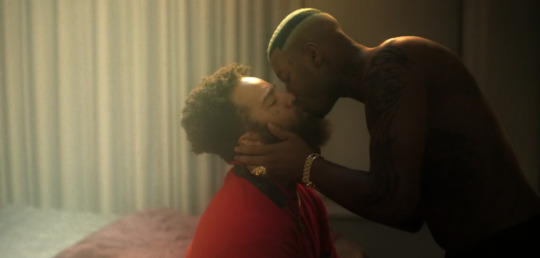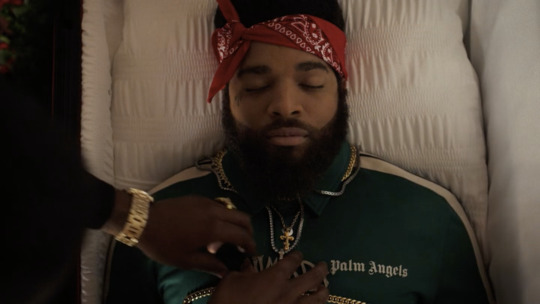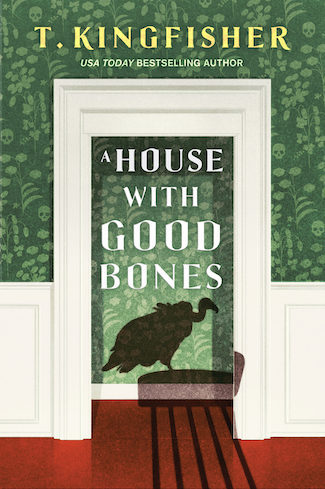#alexis pauline gumbs
Explore tagged Tumblr posts
Text
"I wanted to write a poem about how the extreme heat of the ocean is breaking my heart, but the whales beat me to it. In late July, almost 100 long-finned pilot whales left the deep, usually cold waters where they live—so deep, so cold that scientists have barely been able to study them. Together they came to the coast of western Australia and huddled into a massive heart shape (if your heart were shaped like 100 black whales, like mine is). Then, collectively, they stranded themselves on the shore. As soon as they lost the support of the water, their chest walls crushed their internal organs. They literally broke their hearts. Choreographed under helicopter cameras.
I want to write a poem about how capitalism is a sinking ship and how the extreme wealth-hoarding and extractive polluting systems that benefit a few billionaires are destroying our planet and killing us all. But the orcas beat me to it. Off the Iberian coast of Europe, the orcas collaborated and taught each other how to sink the yachts of the superrich. They literally sank the boats. While Twitter cheered.
The sinking ship is no longer a metaphor. The broken heart is no longer a metaphor. Who needs a metaphor in times as hot and blunt as ours? Let’s make it plain."
-- Alexis Pauline Gumbs
2K notes
·
View notes
Text
[“When Audre Lorde came back from Mexico, she returned to an activist life. She moved in with her activist friend Ruth in the East Village and took a number of low-paying, strenuous jobs to work her way through Hunter College and then Columbia’s School of Library Service. As a student, a worker, a poet, a friend, a lover, Audre was a study in branching. Multiple permeable compartments gave her breathing room to be. As she wrote in a letter to Adrienne Rich, “I knew I was a lesbian before I was twenty, and I swaggered in the knowledge even though it left me terribly alone.”
[….]
Audre cultivated a porous boundary between friendship and romance while living in the Village, going to school in the familiar landscape of the Hunter College campus, and meeting a variety of people in activist organizations and the downtown lesbian bar scene. She presented her gender differently in different settings, inhabiting a range of masculine and feminine styles. She had female and male lovers. She saw all of it as crucial to her emotional and political growth, her increased capacity to know herself and impact the world.
[…]
This was also the time when Audre and another intimate friend, named Ed Rollins, decided to get married and have children. They were close friends, and they both knew about each other’s same-sex lovers and desires. But their families of origin had concerns. Audre’s mother was suspicious of Rollins because he was white. Rollins’s family didn’t even come to the wedding. His father sent a letter warning that their marriage would kill Ed’s mother. Marion and other ex-partners and loving friends also refused to attend. But Audre and Ed decided to make a life together as an interracial married couple with as much bravery and acceptance as they could. Their reception was at Roosevelt House on Hunter College’s campus. Many of Audre’s lesbian friends and lovers were in attendance.
Years later, when an interviewer blurted out that she could not imagine Audre Lorde married to a man, Audre took a breath and began to speak over her: “I had a lot of joy being married with my husband until we went different directions. I don’t see why these directions need to be contradictory. I love individuals. I have the capacity for loving.”]
alexis pauline gumbs, from survival is a promise: the eternal life of audre lorde, 2024
84 notes
·
View notes
Text
they had always been here. every indigenous community massacred, every single prophet assassinated, every child sacrificed to colonialism, every slave rebel shackled in their grave, every unassigned body piled as refuse somewhere, had never disappeared. whatever part they burned into air, whatever part they buried underground, whatever part they threw in the sea, came whole again in every breathing growing thing, and when the warning time came they were all of them (all of them) screaming.
from M. Archive: After the End of the World by Alexis Pauline Gumbs
#Alexis Pauline Gumbs#M. Jacqui Alexander#Black feminist theory#the afterlife of slavery#we seize horror as we bow#hegemonic violence#the possibilities of refusal#and against the haze of the afternoon the softest light
169 notes
·
View notes
Text
I love you with a love of screams. I love you with a love of witness. I love you with a love so old and deep, so complicated I can’t name it. … I live a love you cannot grasp or capture. I want to live inside my name. My name is love. I want to live in love as home, I want to live in it. Expansive and influential. Specific and sacred. I want to earn the right to say it to you. Love.
Undrowned: Black Feminist Lessons from Marine Mammals · Alexis Pauline Gumbs
174 notes
·
View notes
Text
at some point the work of pretending we weren't going to die, that our children weren't going to die, that our deaths and lives weren't going to be forgotten, became unsustainable. it was hard enough to just breathe and metabolize. to find something to metabolize. to find people to metabolize near. now some people call it the true end of whiteness, when the world could finally operate based on something other than fear of blackness, of being, of death. but at the time all we knew was the story had run out. all the stories. of staying young to cheat death. of thinking young people wouldn't die. of immortality via "making a difference." of genetic imprint as stability. of stacking money and etching names on buildings. people used to do those things before. not to mention that they would not mention death and would hide the dying away and strive to protect the eyes of the children who already knew everything. at some point. all the dead being here anyway and all of us here being obviously doomed, we let go of that particular game. and we started breathing. and saw our hands. we let go. i felt like i could fly. - from M Archive: After The End of The World by Alexis Pauline Gumbs
66 notes
·
View notes
Text

Undrowned: Black Feminist Lessons from Marine Mammals · Alexis Pauline Gumbs
75 notes
·
View notes
Text
Tidepool's Top Five List of Environmental Books
(personal opinion this is just a list of book recs)
Braiding Sweetgrass by Robin Wall Kimmer This book expertly blends indigenous knowledge and Western scientific methods. Highly emphasizes precocity and living with the environment instead of separating ourselves further as many Western green movements would have you believe. This book also has realistic strategies for dealing with the climate crisis other than just personal choice.
Hope for Animals and Their World by Jane Goodall Amazing conservation wins from animals that have been brought back from the brink of extinction by zoos and aquariums. Stories like the California condor and the black-footed ferret are featured prominently. This book gave me hope that there may be a solution to saving species from extinction.
We Are All Whalers by Michael Moore Focuses on threats the northern right whale and other whales face out in the ocean and the connection we all have to it as consumers. This book does not shame consumers for their choices though, but rather calls for systematic changes in the fishing and plastic industry. One of the four books that made me cry while I was reading it.
Fresh Banana Leaves by Dr. Jessica Hernandez Amazing criticisms focusing on the Western Conservation Movement and the role of displacement in the environmental movement. The editing could be a bit better, but the message that indigenous knowledge should be centered in the environmentalist movement is impact.
Undrowned: Black Feminist Lessons from Marine Mammals by Alexis Pauline Gums: This book is the second in the "Emergent Strategies" anthology. While all the books are amazing this one is my favorite. The book focuses on the shared relationship between white-western colonialism and the current ways we are affecting the marine environment. She gets a few scientific facts wrong regarding marine biology, but this book is so beautifully poetic I'm willing to over look it.
#environmentalism#book recs#book list#marine biology#jane goodall#robin wall kimmerer#braiding sweetgrass#Michael Moore#We Are All Whalers#Dr. Jessica Hernandez#Fresh Banana Leaves#Undrowned#alexis pauline gumbs
14 notes
·
View notes
Text

from “Abolition Now!: Ten Years of Strategy and Struggle Against the Prison Industrial Complex” available here for free. Source
#prison abolition#transformative love#abolition#abolitionist#prison industrial complex#abolish the police#police abolition#alexis pauline gumbs#critical resistance#strategy#state violence#structural violence#radical means to the root#fundamental change#oh no it's queue
20 notes
·
View notes
Text

Undrowned - Alexis Pauline Gumbs
7 notes
·
View notes
Text
Breathe deep, beloved young and frightened self, and then let go. And you will hold on. So then let go again.
Alexis Pauline Gumbs, “Evidence”
#alexis pauline gumbs#evidence#short story#quote#literature#lit#prose#fiction#inner child#inner child work#mindfulness#resilience
5 notes
·
View notes
Text




an altar to those who have been dispossessed, those who are haunting, and anyone who has been affected by colonialism.
this project was deeply inspired by "Before Dispossession, or Surviving It" by Angie Morrill, Eve Tuck, and the Super Futures Haunt Qollective, "Unparalleled Catastrophe for Our Species?" by Sylvia Wynter and Katherine McKittrick, Octavia's Brood, an anthology dedicated to Octavia Butler, DUB: Finding Ceremony by Alexis Pauline Gumbs, and Parable of the Sower by Octavia Butler.
much gratitude for lexi, who helped me bring an idea into reality, and my critical race and ethnic studies professor micha cárdenas who challenged me greatly this quarter.
let us reimagine the future. a future with a free Palestine and an end to all colonial domination. a future where care and community is central to life.
#free palestine#sylvia wynter#katherine mckittrick#octavia butler#alexis pauline gumbs#from the river to the sea palestine will be free
6 notes
·
View notes
Text
[“After just a couple of semesters as an English major and philosophy minor at Hunter College, Audre felt she knew which fiction was worth respecting. Even though the subtitle described her as a fan, and she called herself a sci-fi “addict” by the end of the piece, she also alluded to her own discerning tastes. She knew how to judge the “character studies” and “emotional integrity” and “artistry” that truly good science fiction authors demonstrated. She called Ray Bradbury a “master craftsman” for his “dexterity” in seriously portraying the imagined perspectives of people living on Mars. She called August Derleth a “master of all fantasy fiction.” All of this before her critique, decades later, of the master’s tools and the master’s house.
For Audre, it was important that good science fiction and fantasy get the science right. As she pointed out, even children know the basics of science. Sci-fi authors cannot irresponsibly portray humans walking on the moon, breathing without any special apparatus. In this piece our young Audre, with the hopeful comradery of a fellow fan, suggests that Seventeen readers start with the collections she calls “excellent,” especially Bradbury’s The Martian Chronicles and Derleth’s edited anthologies The Outer Reaches, The Other Side of the Moon, and Beyond Time and Space.
Audre thought the rise in science fiction’s profile was timely, and timeless. “The unconquerable drive that will always urge man to scan the future and to seek knowledge of what he knows not, is ageless,” she wrote. But the timing of this piece in her life is also telling. The future-oriented work she was reading and writing about may also have reflected her own desire to move into a new stage of life or, in her words, a “preoccupation with things to come and with the better world of tomorrow.” She empathized with a society, especially people in her own generation, who felt “caught in a world very little of our own making.” At the same time, she saw science fiction as an important form of worldmaking, noting that what science fiction depicts will eventually come into being. “Fifty years before the submarine was invented, Jules Verne equipped his fabulous Nautilus with forerunners of present-day submarine equipment,” she pointed out.
And if nineteen-year-old Audre were to make a world, what world would she make? Her own future had a lot in common with the other side of the moon. She had no idea what was going to happen. But she knew she wanted something different. Remember, this was the high school poet who wrote: Strange other lands do call me With alien songs I heed …”]
alexis pauline gumbs, from survival is a promise: the eternal life of audre lorde, 2024
85 notes
·
View notes
Text


"What I need to say is, you are. The walls around your life, the silence around your death, and the language all work to erase you and remove you from me, but they are no stronger than my grief, because my grief is fueled by love and I claim you. And I’ve come back for all the names I’ve never known since you were stolen. '
from Undrowned: Black Feminist Lessons from Marine Mammals by Alexis Pauline Gumbs
J. Alphonse Nicholson as Lil Murda and John Clarence Stewart as Thaddeus (Teak) Wilks in P. Valley created and executive produced by Katori Hall
67 notes
·
View notes
Text

Collage honoring Audre Lorde by Alexis Pauline Gumbs [x]
9 notes
·
View notes
Text
To Our Beloved Community That We Haven’t Met Yet
Beloved Community,
In this sacred sanctuary, we gather as the awakened ones, diving deep into the luminous writings of Adrienne Maree Brown, Alexis Pauline Gumbs, Audre Lorde, and other radiant minds. Our journey is one that honors the vastness of thought and the expansiveness of feeling in this wondrous world.
As we turn away from the grip of capitalism, defy societal norms of relationships and parenthood, or venture into uncharted territories of our own making, we relinquish the external validations that once tethered us. However, it can be a daunting journey to feel displaced and alone amidst the currents of the mainstream. This departure can be a pilgrimage of trauma and isolation, leading many of us to retreat into the serenity of our own dwellings, brewing potions of solace and introspection.
And yet, in the quietude of our introverted nature, a deep longing for connection with kindred souls persists. For in that delicate space of togetherness lies the potential for immense sensitivity, exquisite pain, and transformative rebirth.
We forge this community with purpose and our purpose, dear ones, is to cultivate a haven for the truly awakened—a sanctuary where our collective musings, whimsical memes, and heartfelt reflections find respite. In this shared realm, we give validation and support, extending our embrace even when society falls behind. Let us gracefully nurture our inner children with radical self-love and the art of self-discovery, and let us enfold one another tenderly.
Through the alchemy of our unity, we discover comfort, empowerment, and the weightlessness of shared vulnerability. Welcome, beloveds, to the abundant and fertile realm of YAMWTW (You and Me with the World). Unfurl your spirits to the gentle stir of a meme awakening the sage within, let a quote beckon you to bloom in hues uncharted, and let every captivating offering finds a home here with you and me, with the world.
With boundless love,
NK

#Lush#world#abundance#beloved community#radical#love#alternate path#road less traveled#artists on tumblr#vulnerability#intuition#audre lorde#alexis pauline gumbs#adrienne maree brown
4 notes
·
View notes
Text
Culture Consumption: April 2023
Hi, lovelies. Here’s my month in books, movies, television, and games. Books T. Kingfisher never fails to craft books with darkly beautiful concepts that terrifying me, while simultaneously making me love the characters and feel for their journey. Her new book, A House with Good Bones, is no exception. After her archeological dig site temporarily closes down, Sam returns to her family home while…

View On WordPress
6 notes
·
View notes